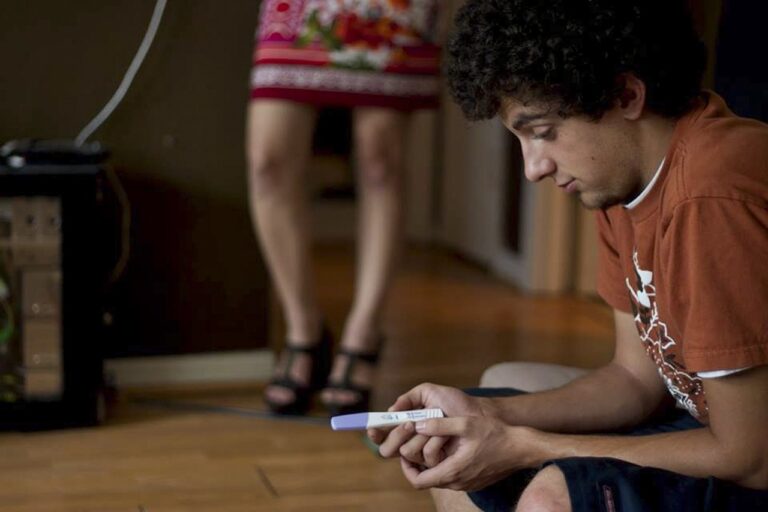Many couples try to track their ovulation cycle and have sex on days that they’re most fertile. But some find that tracking ovulation can feel like work and can lead to unwanted pressure and stress.
So, is having sex everyday bad when trying to conceive? Here are four reasons why it’s not.
1. It’s not necessary
Many couples are told that they should have sex every day or every other day when trying to conceive. The concern is that frequent sex can deplete the sperm reservoir, which can make it harder to get pregnant. However, this is not true. Most studies have shown that having sex every day or every other day has the same chances of getting pregnant as having sex only once a day.
It is also not necessary to have sex in certain positions or on particular days. In fact, sex in any position will suffice as long as the sperm can reach the cervix. Moreover, it has been shown that masturbation can be equally effective in satisfying sexual urges and increasing fertility.
Some people find it helpful to track their ovulation so they can time their sex to coincide with their most fertile window. However, this can be a lot of work and may lead to unwanted stress. Plus, it is not always accurate – for example, if you’re having your period at the time of your ovulation cycle, you could miss out on the optimal window.
Overall, it is important to remember that sex is about more than just conception and can be a great way to connect with your partner. Feeling pressure to have sex on a schedule can take the joy out of your sexual relationship, so it’s best to stick with what feels good for you and your partner.
2. It’s not bad
If you’re a woman who has a high libido, having sex every day is not a bad thing. Having sex that is frequent and intense can lead to a deeper connection with your partner, which is beneficial for both fertility and overall health. However, if you start to feel like you’re having sex just to get pregnant, you may want to consider reducing the frequency or changing the timing of your sexual activity.
Having sex every day during your fertile window (usually the five days leading up to ovulation and the day of ovulation) can increase your chances of getting pregnant by 25 percent, according to a 1995 study published in the New England Journal of Medicine. Likewise, men with normal sperm counts can have sex every day without fear of lowering their conception chances.
Ultimately, you and your partner should decide how often to have sex. If you find that having sex twice a day during the fertile window is too much, you can scale back without damaging your fertility or your relationship. Just be sure to track your hormones with a fertility monitor to make the most of your fertile window and improve your chances of getting pregnant! You can also try morning sex to see if that works better for you and your partner.
3. It’s not harmful
Sex is a great way to release endorphins, boost the immune system and increase blood flow to the reproductive organs. This can help conceive a baby as it makes it easier for sperm to enter the woman’s body and meet an egg.
It’s also a great way to strengthen your relationship through physical intimacy. This will help you both feel more satisfied in your sexual relationships and build trust. Many people find that having sex more often is actually good for their mental health. It helps them to relax and reduces feelings of depression and stress. This can make it more likely to conceive as it will help you to be able to cope with the stresses of trying to conceive.
Some couples try to time their sex to coincide with the woman’s fertile window in order to increase their chances of conception. However, this can be stressful for both partners and does not guarantee a pregnancy.
If you are going to have sex every day, make sure you are using condoms and are all set when it comes to birth control. Having sex everyday is not harmful, but if you are experiencing genital soreness, fatigue or pain in your penis or vagina, you may want to take a break for a few days.
4. It’s not stressful
It’s important for couples to remember that sex is about more than just conception. It’s about relationship satisfaction, pleasure, and overall well-being. Having sex on a regular basis can increase intimacy and provide a sense of connection to your partner. It can also boost libido and promote mental health, and it’s a great way to relieve stress. However, there is a downside to overindulging in sexual activity: It can lead to genital soreness and discomfort, a loss of interest in intimate activities, and even mental health issues such as depression and anxiety.
When trying to conceive, couples may feel pressure to have sex more often than is healthy or enjoyable. Keeping up with your sex needs can be especially difficult when trying to track ovulation and find the optimal time to conceive. But it’s not necessary to increase your chances of getting pregnant; just make sure you use a lubricant to help with the process and keep sex at a comfortable level for both of you.
Many experts recommend that you have sex every day during your fertile window to increase your chances of conceiving, but this can be stressful for couples and takes the fun out of intimacy. Plus, it’s impossible to predict your ovulation cycle with 100% accuracy, so this method is unlikely to work for everyone.
See Also:



